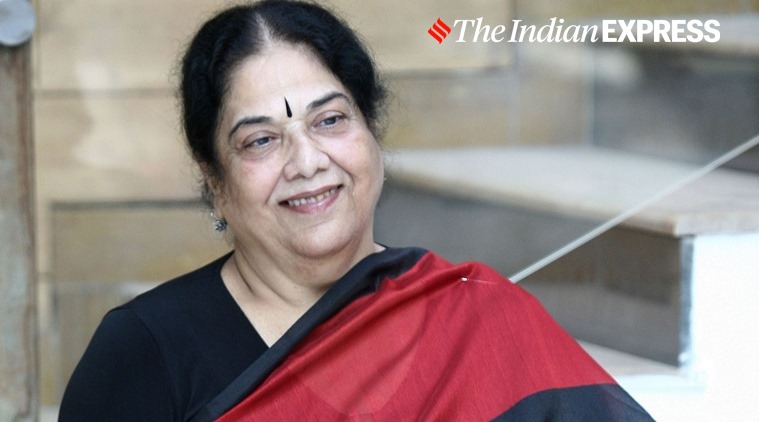 Theatre director Usha Ganguly. (Express photo)
Theatre director Usha Ganguly. (Express photo)
Do we celebrate a life or mourn a death is a question that assails me as I reflect on the passing away of theatre director Usha Ganguly in Kolkata last Thursday. Her plays, among them Court Martial and Rudali, enacted by her theatre group Rangkarmee, founded in 1976, conveyed her single minded obsession and commitment to her work that can loosely be classified as representational realism.
Within this vast framework, she injected flashes of experimentation, taking risks with dramatic flourishes that added a freshness and verve to her work. With her distinct way of dealing with social narratives, storytelling, and structures, Usha effectively and dramatically wove all these strands together. Her theatrical generosity was visible in the way she accepted and admired other directors’ way of working with alternative sensibilities.
Usha was a friend and confidant of decades, someone I deeply admired. An enduring memory I have of her — one that is indicative of her indomitable and infectious spirit — dates back to our trip to Lahore in 2005 for a theatre festival organised by Madeeha Gauhar of the Ajoka Theatre group. As part of our hosts’ mehman nawazi, we were taken to the famous food street in Lahore’s Anarkali Bazaar. The atmosphere in this delightful labyrinth of streets was carnivalesque. Anarkali Bazaar’s food street is well known for its varied cuisine, but more so for the fact that it is part of the city’s centuries-old red light area. We were enjoying the festive atmosphere and eating the delicious food when, without notice, Usha jumped up and, with vivacious abandonment, began dancing as if she were in a trance. She swirled, gyrated and pirouetted, singing all the while along with the minstrels. One of the Pakistani actors accompanying us somewhat inappropriately remarked that, “aaj badnam basti mai ek sirfzaidi ka nacch dekha” (in a disreputable locality a respectable women is dancing ), but he did so with secret awe and admiration. Other patrons at surrounding tables and cafes too were captivated by Usha’s unprompted performance and gravitated towards her clapping, singing and swaying with the music.
Whenever we met, our conversation was never personal and began and ended with the new plays she was scripting, the shows she was participating in, and the pressures of operating a big theatre company. It was theatre that defined and consumed her. Once she told me that she managed 38 shows in a month – one in the morning in a school courtyard followed by another in a bank, and yet another in the evening in a posh Kolkata theatre. The latter were part of the folklore and history of Bengali theatre, where stalwarts including Nati Binodini, Utpal Dutt and Shambhu Mitra had performed. Usha’s capacity to spread herself across so many theatrical milieus and coalesce them into a cohesive whole was a rare talent. What impressed me the most was that her work cut through multiple social strata.
I always looked upon Usha as a movement, comprising students and theatre professionals. Even stragglers were welcome and some ended up gradually becoming an intrinsic part of her journey as a director. Compassion and the ability to make an immediate connect with her players and audiences were the intangible thread that kept her theatre company together for so many years.
The most amazing and mysterious improbable, however, was that most of her productions were in Hindi. Her working in Hindi in Kolkata, the heart of Bengali theatre, and being wholly accepted there, has never ceased to amaze me.
But I do have one regret.
Whenever we met, she always expressed a desire for me to direct her. She often said that she was even willing to come for an extended period to Chandigarh to make this happen. Regretfully, I allowed that moment to pass, thereby missing the opportunity to work with an actor with incredible talent, charisma and an insatiable urge to explore, investigate and tread new theatrical paths.
This article first appeared in print under the headline ‘An Unparalleled Act’.
The writer is a Sangeet Natak Akademi winner and professor emeritus at Panjab University